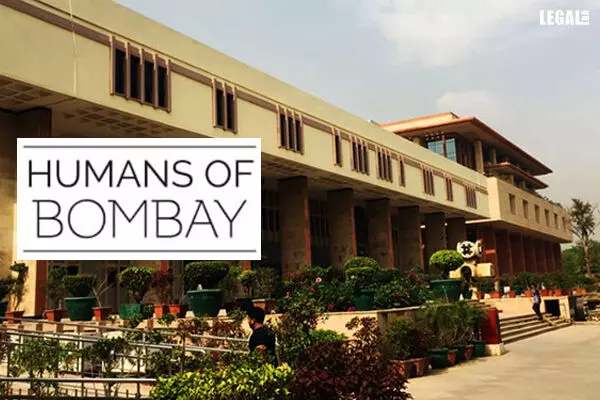- Home
- News
- Articles+
- Aerospace
- Agriculture
- Alternate Dispute Resolution
- Banking and Finance
- Bankruptcy
- Book Review
- Bribery & Corruption
- Commercial Litigation
- Competition Law
- Conference Reports
- Consumer Products
- Contract
- Corporate Governance
- Corporate Law
- Covid-19
- Cryptocurrency
- Cybersecurity
- Data Protection
- Defence
- Digital Economy
- E-commerce
- Employment Law
- Energy and Natural Resources
- Entertainment and Sports Law
- Environmental Law
- FDI
- Food and Beverage
- Health Care
- IBC Diaries
- Insurance Law
- Intellectual Property
- International Law
- Know the Law
- Labour Laws
- Litigation
- Litigation Funding
- Manufacturing
- Mergers & Acquisitions
- NFTs
- Privacy
- Private Equity
- Project Finance
- Real Estate
- Risk and Compliance
- Technology Media and Telecom
- Tributes
- Zoom In
- Take On Board
- In Focus
- Law & Policy and Regulation
- IP & Tech Era
- Viewpoint
- Arbitration & Mediation
- Tax
- Student Corner
- AI
- ESG
- Gaming
- Inclusion & Diversity
- Law Firms
- In-House
- Rankings
- E-Magazine
- Legal Era TV
- Events
- News
- Articles
- Aerospace
- Agriculture
- Alternate Dispute Resolution
- Banking and Finance
- Bankruptcy
- Book Review
- Bribery & Corruption
- Commercial Litigation
- Competition Law
- Conference Reports
- Consumer Products
- Contract
- Corporate Governance
- Corporate Law
- Covid-19
- Cryptocurrency
- Cybersecurity
- Data Protection
- Defence
- Digital Economy
- E-commerce
- Employment Law
- Energy and Natural Resources
- Entertainment and Sports Law
- Environmental Law
- FDI
- Food and Beverage
- Health Care
- IBC Diaries
- Insurance Law
- Intellectual Property
- International Law
- Know the Law
- Labour Laws
- Litigation
- Litigation Funding
- Manufacturing
- Mergers & Acquisitions
- NFTs
- Privacy
- Private Equity
- Project Finance
- Real Estate
- Risk and Compliance
- Technology Media and Telecom
- Tributes
- Zoom In
- Take On Board
- In Focus
- Law & Policy and Regulation
- IP & Tech Era
- Viewpoint
- Arbitration & Mediation
- Tax
- Student Corner
- AI
- ESG
- Gaming
- Inclusion & Diversity
- Law Firms
- In-House
- Rankings
- E-Magazine
- Legal Era TV
- Events
Delhi High Court Restrains Humans of Bombay and People of India From Using Each Other's Copyrighted Material

Delhi High Court Restrains Humans of Bombay and People of India From Using Each Other's Copyrighted Material
Emphasizes that none of them had copyright over the idea
The Delhi High Court has stated that Humans of Bombay (HoB) and People of India (PoI) cannot use each other's copyrighted material.
The bench comprising Justice Prathiba M Singh noted that as per the law, there was no copyright in an idea, but emphasized that if the expression of the idea was copied or imitated, it could constitute copyright infringement.
HoB had sued PoI for allegedly publishing unlicensed adaptations, appropriating its films, literary works, unique format storytelling, creative expression, presentation of storyboard, and the manner that identified with HoB.
On the other hand, PoI had argued that HoB could not claim copyright over the concept of a storytelling platform and that both platforms were inspired by the model established by the Humans of New York.
However, the court stressed that the key issue was not where the idea originated from, but whether either party copied the other's specific content, including images.
PoI had claimed that HoI had also copied some images from its platform. Since the subjects of the story had themselves sent the images, no case of copyright could be claimed by HoI.
The bench observed that there could not be any monopoly in running a storytelling platform. It emphasized that all platforms must adopt their own creative expression to communicate and disseminate stories.
Justice Singh added, "If some photographs are commissioned, the copyright in the said photographs would vest with the platform. Similarly, if any videos are produced, the copyright would vest in the platform and qualify as cinematographic works.”
The court directed both platforms to refrain from using each other's copyrighted works, including commissioned photos, original stories, videos commissioned by themselves, and their manner of expression. It also highlighted that there could be no copyright claim over private photos of individuals who sent them to either platform.
The bench stated, "Both platforms - Humans of Bombay and People of India shall refrain from using each other’s copyrighted works. (1) Commissioned photographs (2) Literary works such as interviews and original pieces written by their own authors (3) Any videos that have been commissioned by themselves, and (4) The manner of presentation that has been adopted by the platforms in respect of a particular subject or individual. Regarding the individual’s or subject’s photographs from their own private collection is concerned, there can be no copyright claim by either of the platforms.”
Earlier, the bench had issued a summons to PoI, directing it to file its response to the suit and as the interim relief application, restrained it from using the copyrighted work of HoB.
However, the dispute became a hot subject on social media after the Humans of New York founder Brandon Stanton expressed his discontent with the suit filed by HoB.
On 23 September, Stanton took to X (formerly Twitter) stating that he was quiet on the ‘appropriation’ of his work by HoB because it shared important stories. However, what compelled him to write was the fact that the company had no right to sue others for similar reasons.



